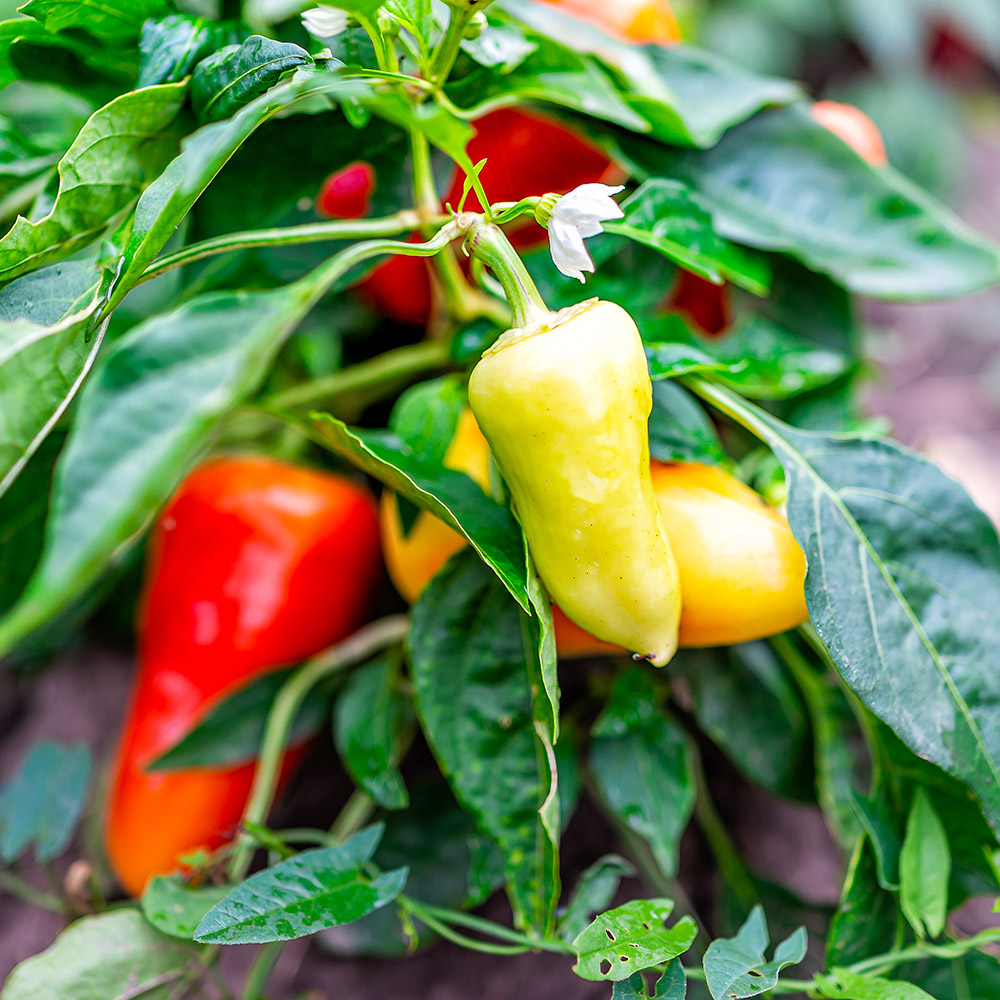Organic Vs. Synthetic Fertilizers: Which Is Best for Nurturing Healthy And Balanced Pepper Plants?
In the realm of nurturing healthy and balanced pepper plants, the selection between organic and synthetic fertilizers stands as a pivotal decision with far-ranging ramifications. While both choices goal to offer important nutrients to sustain plant development, the subtleties of their influence on the soil, plant wellness, and the environment trigger an argument that mirrors throughout the gardening community. Understanding the distinctive benefits and prospective challenges of each fertilizer kind is important for pepper cultivators seeking to maximize their yields while keeping a sustainable and eco-conscious technique.
Advantages of Organic Fertilizers
Organic fertilizers use an environmentally-friendly and lasting technique to beneficial pepper plants, offering vital nutrients without making use of artificial chemicals. These natural fertilizers are stemmed from organic sources such as garden compost, manure, bone dish, and seaweed, advertising soil health and biodiversity. Unlike artificial fertilizers, organic options launch nutrients slowly, making sure a balanced and consistent supply for pepper plants to flourish.
One significant advantage of organic fertilizers is their ability to enhance soil structure and water retention. By improving dirt health and wellness, natural plant foods advertise beneficial microbial task, which assists in nutrient uptake by pepper plants. In addition, natural fertilizers minimize the danger of chemical run-off, protecting water sources from pollution and guarding the environment.
Furthermore, natural plant foods add to long-term soil fertility by advertising the growth of beneficial soil organisms. These organisms help damage down natural issue, launching nutrients in a form that is conveniently available to pepper plants. best fertilizers for peppers. By promoting a healthy and balanced dirt ecosystem, organic plant foods sustain lasting pepper farming practices that profit both plants and the setting
Disadvantages of Synthetic Plant Foods
Artificial plant foods, unlike their organic counterparts, position various negative aspects when made use of to nurture pepper plants, impacting both plant health and wellness and environmental sustainability. One major drawback of artificial plant foods is their propensity to leach nutrients from the dirt quickly. This rapid leaching can result in nutrition discrepancies in the dirt, creating plants to experience from shortages or toxicities. Furthermore, synthetic fertilizers can harm beneficial dirt microorganisms, such as earthworms and valuable bacteria, interfering with the dirt ecosystem's balance.
Furthermore, the overuse of artificial fertilizers can add to water contamination. Excess fertilizers not absorbed by plants can clean away right into water bodies, leading to eutrophication, where algae blooms diminish oxygen degrees in the water, hurting aquatic life. Artificial plant foods are normally acquired from non-renewable resources, such as fossil fuels, adding to carbon discharges and ecological destruction throughout their manufacturing.
Nutrient Absorption Contrast
Reliable nutrient absorption plays an essential role in the total health and growth of pepper plants. When contrasting organic and synthetic fertilizers in terms of nutrient absorption, natural plant foods have the benefit of giving a much more well balanced and slow-release resource of nutrients (best fertilizers for peppers). Organic plant foods include a selection of macro and micronutrients that are not just advantageous for the plants but also advertise healthy and balanced soil microbial activity, which helps in nutrient uptake. On the various other hand, artificial plant foods often supply a fast release of nutrients, which can result in leaching and runoff, causing reduced nutrient absorption prices by the plants.
In addition, natural plant foods improve dirt framework and water retention capacity, enabling pepper plants to gain access to nutrients a lot more effectively. This improved dirt quality assists in origin growth, making it possible for better nutrient absorption. Artificial plant foods, although initially More hints increasing plant development due to their high nutrient concentrations, might prevent long-lasting nutrient absorption by degrading dirt wellness over time.
Ecological Effect Factors To Consider

On the other hand, synthetic fertilizers, although usually even more right away offered and concentrated to plants, can have damaging effects on the setting if not applied properly (best fertilizers for peppers). Their manufacturing calls for high energy inputs, bring about greenhouse gas exhausts and adding to climate modification. The runoff of excess artificial plant foods can infect water sources, leading to eutrophication and hurting marine ecosystems.
Ideal Plant Food Practices for Peppers
When feeding pepper plants, optimizing nutrient uptake and minimizing ecological effect are essential considerations. To accomplish this, it is crucial to comply with ideal plant food practices tailored to the certain requirements of pepper plants. One vital technique is to carry out a dirt test before applying any type of plant foods. This examination can figure out the pH level of the dirt and determine any kind of nutrient deficiencies, directing you in selecting the most suitable fertilizer formula.
Another important practice is to fertilize pepper plants at the right time. Typically, peppers profit from receiving fertilizer at planting and afterwards once more when they start to blossom. Over-fertilizing can bring about nutrient inequalities and damage the plants, so it is essential to follow suggested application rates.
Furthermore, picking a balanced fertilizer with an NPK proportion that fits pepper plants' requirements is essential. Ultimately, integrating natural and synthetic fertilizers carefully can assist support healthy pepper plants while reducing environmental influence.
Conclusion

Organic fertilizers supply a lasting and environmentally-friendly approach to nourishing pepper plants, supplying important nutrients without the use of artificial click chemicals. Unlike artificial fertilizers, natural alternatives release nutrients slowly, making sure a balanced and consistent supply for pepper plants to prosper.
Synthetic fertilizers, in comparison to their organic equivalents, posture various downsides when used to nurture pepper plants, affecting both plant health and wellness and environmental sustainability. When contrasting artificial and organic plant foods in terms of nutrient absorption, organic plant why not look here foods have the benefit of providing a much more well balanced and slow-release resource of nutrients.In addition, natural fertilizers improve soil framework and water retention ability, allowing pepper plants to access nutrients a lot more efficiently.